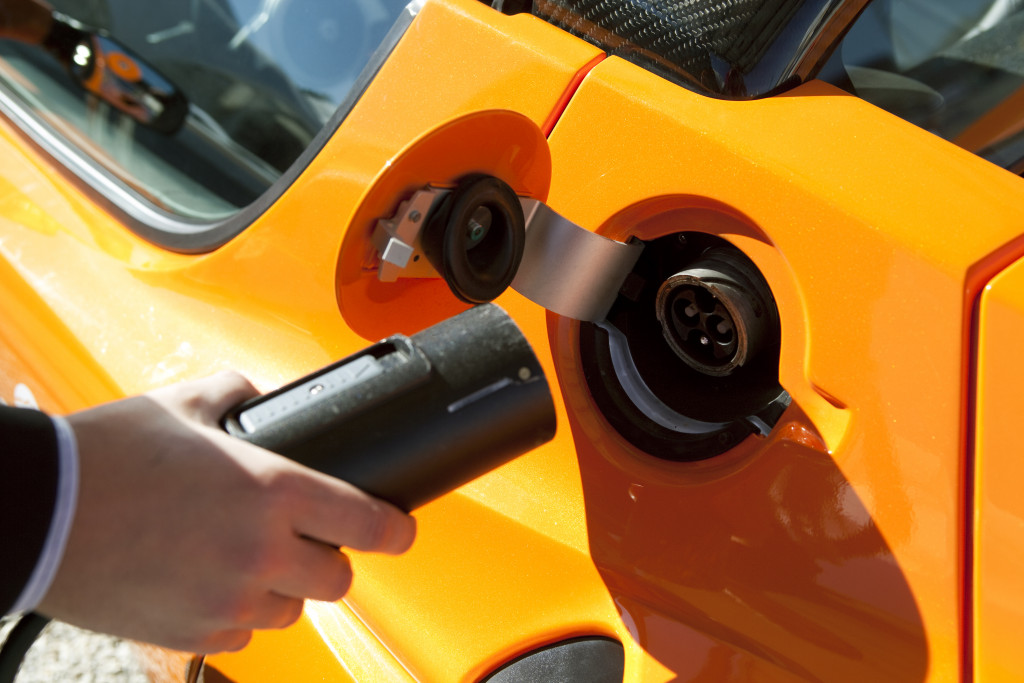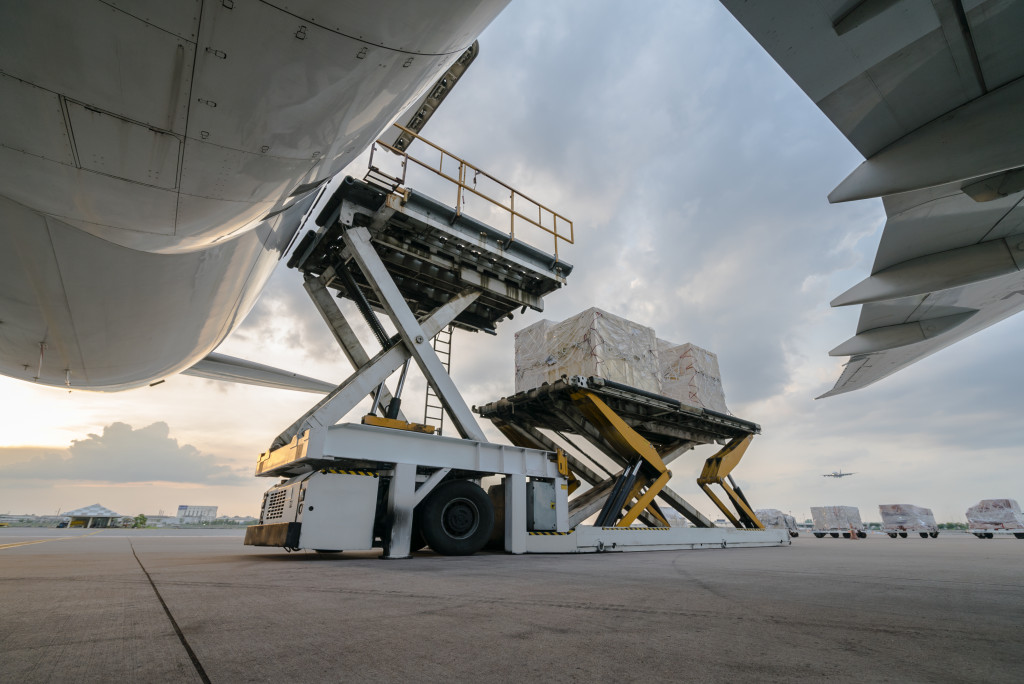- Autonomous drones can reduce delivery times and operational costs.
- Blockchain enables real-time tracking of shipments for increased transparency.
- IoT and sensor technology enable proactive cargo monitoring and maintenance.
- Electric vehicles provide environmental sustainability benefits while reducing fuel costs.
- GPS freight tracking provides real-time visibility, allowing logistics optimization so that you can adequately track your shipments.
In the fast-paced world of cargo and freight transportation, staying ahead of the competition requires embracing innovative technologies that streamline operations, enhance efficiency, and improve overall customer experience. As a cargo business owner, you can leverage technology to your advantage. This guide will explore five transformative technologies that can revolutionize your cargo business, empowering you to deliver goods faster, safer, and more reliably.
1. Autonomous Drones for Last-Mile Delivery
Imagine a fleet of autonomous drones efficiently navigating through traffic and delivering packages right to your customers’ doorstep. Autonomous drone technology has evolved significantly in recent years, offering tremendous potential for last-mile delivery in the cargo industry.
Here are the benefits of autonomous drones:
Faster Delivery
Autonomous drones can fly at speeds of up to 70 miles per hour, enabling you to reduce delivery times and increase customer satisfaction. Additionally, automated operations reduce human error, reducing delays and improving reliability.
Low Cost
With autonomous drones, you don’t have to worry about fuel costs or driver salaries because they are powered by electricity and require minimal maintenance. Automation also eliminates the need for costly manual labor and streamlines operations, lowering operational expenses.
Remote Access
Drones provide access to remote locations that may be difficult for traditional vehicles due to terrain or weather conditions. This allows you to expand your delivery network and capture a larger market share.
Increased Safety
Autonomous drones fly low and slow, reducing the risk of accidents and injuries compared to traditional vehicles. This increases safety for both your personnel and customers, while also improving public acceptance of drone technology. With automated operons, you can trust that your drones will be operated safely and comply with applicable regulations.
2. Blockchain for Enhanced Supply Chain Transparency

Blockchain technology offers an innovative solution to enhance transparency and traceability within the cargo supply chain. By creating a decentralized and immutable ledger of all transactions and movements, blockchain enables real-time tracking of shipments from the point of origin to the final destination. This heightened transparency instills trust among stakeholders and reduces the risk of fraudulent activities. Smart contracts on the blockchain can automate various processes, such as payment settlements, reducing paperwork and minimizing delays. Embracing blockchain technology can optimize supply chain management, improve inventory control, and give customers real-time updates on their cargo’s location and condition.
3. IoT and Sensor Technology for Cargo Monitoring
The Internet of Things (IoT) and sensor technology present immense cargo monitoring and maintenance potential. Equipping cargo containers with IoT-enabled sensors lets you gather valuable data on factors like temperature, humidity, shock, and vibration during transit. This information helps you proactively detect deviations from optimal conditions and take corrective actions to prevent damage or spoilage of goods. Moreover, IoT devices enable predictive maintenance, allowing you to identify potential issues with vehicles and equipment before they escalate, reducing downtime and repair costs. Integrating IoT and sensor technology into your cargo business can improve cargo safety, enhance quality control, and increase customer satisfaction.
4. Electric Vehicles for Sustainable Transportation

As environmental concerns grow, transitioning to electric vehicles (EVs) in your cargo fleet demonstrates your commitment to sustainability and eco-friendliness. Electric cargo trucks offer various benefits, such as reduced greenhouse gas emissions, quieter operations, and lower fuel costs. Additionally, many governments provide incentives and subsidies for businesses adopting clean energy solutions, further boosting your return on investment. However, it’s essential to consider the range and charging infrastructure to ensure smooth operations and avoid range anxiety. Embracing electric vehicles aligns your cargo business with eco-conscious values and enhances your brand reputation among environmentally-conscious customers.
5. GPS Freight Tracking for Real-Time Visibility
In the cargo industry, real-time visibility is crucial for ensuring efficient operations and meeting customer expectations. Investing in high-quality GPS freight tracking lets you track your shipments’ precise location throughout the journey, providing real-time updates. With GPS tracking, you can accurately estimate arrival times, manage delays proactively, and optimize route planning to avoid congested or unsafe areas. Furthermore, you can allow your customers to track their shipments in real-time, enhancing their trust and satisfaction with your services. Integrating GPS freight tracking into your cargo business empowers you with data-driven insights, streamlines logistics, and boosts overall operational efficiency.
In Summary
Incorporating cutting-edge technologies into your cargo business can significantly transform your operations, driving growth and success in a highly competitive industry. Autonomous drones streamline last-mile delivery, while blockchain enhances supply chain transparency. IoT and sensor technology enable cargo monitoring, and electric vehicles pave the way for sustainable transportation. Finally, GPS freight tracking provides real-time visibility and empowers you to optimize your logistics. By embracing these technologies, you can stay ahead of the curve, deliver exceptional customer experiences, and secure a prosperous future for your cargo business.

